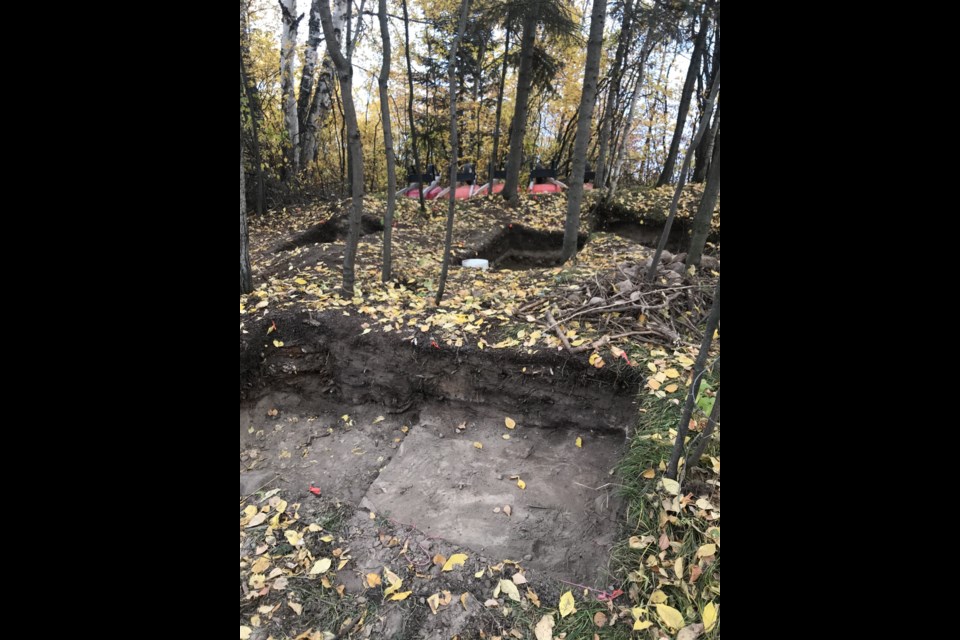LAC LA BICHE - Provincial officials with Alberta Environment and Parks have released no new details on the results of an impact assessment that involved a recent dig at the day-use camping area of Sir Winston Churchill Park in Lac La Biche County.
In early October, a team of archaeologists contracted by the provincial government wrapped up a month-long site visit and dig at the popular provincial park. Government officials tell the Lac La Biche POST newsroom that the project began on Sept. 8 and was completed by Oct. 8.
A small area alongside the main access road into the park's day-use area — a few hundred feet from the community cook-out shelter — was bordered with orange snow-fence for a portion of that time. Several precise, shallow holes — rectangular and square — had been dug into the cordoned-off area. Tools and dirt-sifting equipment was also being used at the site.
When contacted by the Lac La Biche POST newsroom in early October, provincial government representatives from Alberta Environment and Parks said the work was part of "Historic Impact Assessments."
The assessments, explained Bridget Burgess, a communications advisor for the department, were in preparation for a future project.
"The contractors on site — archaeologists — were carrying out Historic Resource Impact Assessments as there is a proposed refurbishment project plan for Sir Winston Churchill Provincial Park," she said, explaining that the assessment is done before any work can begin. "This is the first step before plans are finalized and development activity begins."
Two email request for followup information sent over the last two weeks, including details on what items — if any — were found, or what the proposed refurbishment project is, have not been returned.
In past years, local historians like the late former Mayor Tom Maccagno, have displayed ancient arrowheads and artifacts from pre-settlement times that were found along the shores of the provincial park.
According to provincial data, Sir Winston Churchill Provincial Park is made up of eight islands in Lac La Biche lake. The biggest island, known provincially as the Island Park, boasts an interior filled with an old-growth boreal forest dating back 300 years.



